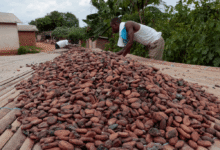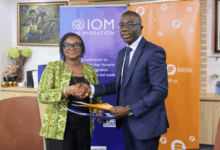Execution of 2022 budget: Significant challenges remain – BoG

The Bank of Ghana (BoG) says significant challenges remain with the execution of the 2022 budget as revenue mobilisation has not kept pace with projections.
That, it said, had created financing difficulties for the government.
Dr Maxwell Opoku-Afari, Second Deputy Governor of BoG, said this in a speech read on his behalf by Dr Philip Abradu-Otoo, Director of Research, BoG last Friday at a Financial Literacy Workshop for Journalists in the Northern Zone of Ghana.
The workshop organised by the BoG and attended by journalists in the region was on the theme “Sustaining the recovery: The role of the journalist in building confidence.”
This training workshop, the second in the series, is part of the bank’s strategic measures aimed at building the capacity of business and financial journalists to improve understanding and communication of monetary policy issues.
Dr Opoku-Afari said the government could not access funds from the international capital market this year due to the country’s elevated debt levels.
“In the absence of access to the international capital market and given the constrained domestic financing, central bank overdraft had helped to close the financing gap as reflected in the mid-year budget review while the fiscal challenges have also accentuated debt sustainability concerns,” Dr Opoku-Afari said.
He said the COVID-19 pandemic and the Russia-Ukraine had impacted the Ghanaian economy, as inflation was soaring, the cedi depreciating and the country facing balance of payments difficulties, resulting in Ghana approaching the IMF to address the current imbalances and economic challenges.
He said despite strong rebound from the pandemic in 2021 as evidenced by the 5.4 percent overall real Gross Domestic Growth (GDP) growth and 6.3 percent non-oil GDP growth, recent data points to some softening in the growth momentum.
For instance, he said, headline inflation had shifted above the upper band of the medium-term target, driven mainly by food prices, transport costs, upward adjustments in ex-pump petroleum prices, and pass-through of exchange rate depreciation.
Dr Opoku-Afari said latest data showed that headline inflation rose sharply to 31.7 percent in July 2022 from 29.8 percent in June 2022 on the back of significant increase in both food inflation and non-food inflation.
He said the Bank’s forecast indicated that inflation would peak later this year and begin trending back towards the medium-term horizon.
“It is expected that the ongoing policy discussions with the IMF will help address the underlying macroeconomic challenges, restore fiscal and debt sustainability, and re-anchor sustainable balance of payments,” he said.
The Second Deputy Governor urged journalists to churn out accurate reports to bring out confidence in the economy as Ghana sought support from the International Monetary Fund
“We need to remember that Ghana is a market access country and economic news affect sentiments,” Dr Opoku-Afari.
BY KINGSLEY ASARE





